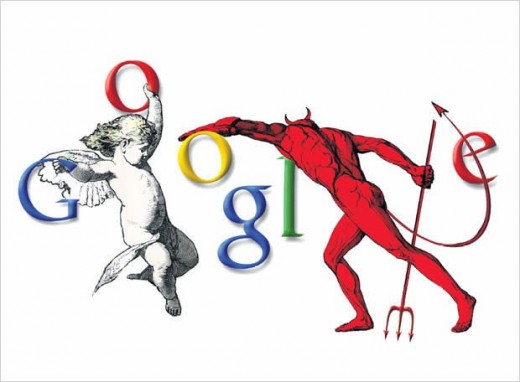As always with startups, there’s a major complication on our horizon: European policymakers now see our new digital media company as the enemy, or at least as a frenemy.
Our ongoing project is Dispatches, a digital media company/corporate services firm for expats in Europe. We believe our timing is auspicious, because more corporations are going global, and more English-speaking techpats are looking for opportunities in innovations centers from Barcelona to Helsinki.
Dispatches should be striking alliances across Europe with economic-development officials to promote innovation centers and celebrate new companies. Instead, the Court of Justice of the European Union and the European Commission are cracking down on digital firms such as ours due to perceived privacy violations.
 Which is ironic considering how EU leaders such as Germany Chancellor Angela Merkel have long agonized over Europe’s lack of digital success compared to the United States, and how Europe can cultivate its own Silicon Valleys.
Which is ironic considering how EU leaders such as Germany Chancellor Angela Merkel have long agonized over Europe’s lack of digital success compared to the United States, and how Europe can cultivate its own Silicon Valleys.
As the Wall Street Journal has pointed out, the digital privacy laws passed last week could set Europe up for failure for years to come:
The sweeping new digital-privacy regime that European Union officials agreed to on Tuesday runs counter to practices that have become commonplace in the U.S., according to several American corporations. The combination of stiff penalties and ambiguously worded provisions in the new EU-wide data-protection law, which would replace a patchwork of 28 national laws, raises daunting prospects for companies operating in Europe. U.S. companies in industries ranging from advertising to health-care have embraced the opportunity to analyze vast amounts of data collected from sensors, apps and other sources. The new law places substantial roadblocks in their way, companies say, by specifically targeting data mining and user profiling.
EU regulators would have the authority to fine offending companies up to 4 percent of their global revenue!
The EU privacy rules, while aimed at U.S.-based digital giants such as Facebook and Google, are not an abstraction for tiny startups such as Dispatches. Our business model includes IP marketing using proprietary targeting techniques with IP address data bases. This “direct marketing” and the data it produces are under-utilized in Europe. Is that because they’re banned? We don’t know yet.
So much of our success with our first digital-only news and entertainment site, Insider Louisville, had to do with gathering audience data through various conventional tools such as reader surveys. Also, we were able to capture blind information about our audience through simple analytics, but those numbers proved to advertisers that our “insiders,” as we called them, were better educated than the general population, earned double the per-capita income and were likely to be business owners, top executives or top government officials.
Let me be clear: We never captured information about specific people, only IP addresses and cookies. But would even that be legal in Europe? We don’t know. All we know is what we read, and it doesn’t sound promising.
This digital kerfuffle is fallout from Edward Snowden’s leaks about U.S. intelligence agencies’ – specifically the National Security Agency’s – post-911 surveillance of European diplomats, senior EU leaders and even national leaders such as German Chancellor Angela Merkel. After the Snowden revelations, an Austrian citizen, Max Schrems, told the CJEU he is worried the NSA might end up with his Facebook posts … despite offering no evidence the NSA or anyone else is even vaguely interested in what he thinks, says or does.
On Sunday, the New York Times reported more than 350,000 Europeans have asked Google to remove links to 1.3 million web pages from search results since the CJEU ruled in May 2014 that people have a “right to be forgotten.”
 In November, a Belgian judge ordered Facebook to stop tracking people who are not FB “members” (ie, they don’t have an FB account). The judge ruled FB collecting personal data via tracking cookies when non-members visit the social media site violates EU privacy laws.
In November, a Belgian judge ordered Facebook to stop tracking people who are not FB “members” (ie, they don’t have an FB account). The judge ruled FB collecting personal data via tracking cookies when non-members visit the social media site violates EU privacy laws.
FB can only use that data if the Internet user expressly gives their consent under Belgian privacy laws, according to the BBC. This follows an earlier dispute between Facebook and Ireland, which in turn sparked growing tension between U.S. digital giants and the EU over the transatlantic flow of data from European residents to social media and e-commerce sites in the United States.
Oct. 6, the Court of Justice of the European Union struck down a Safe Harbor agreement between the EU and the US that had regulated the trans-Atlantic flow of digital information for 20 years. About 5,000 companies have certified they are in compliance with EU privacy principles since the agreement was adopted in 2000, permitting them to transfer personal data to the U.S., according to a Wall Street Journal opinion post.
From the WSJ:
…. the ruling warrants urgent actions by the U.S. government to explain that this country’s legal rules do provide substantial protections for European citizens’ privacy rights.
Unless the government can do so, European privacy regulators will begin to choke off the flow of personal data to the U.S. This would seriously inhibit trans-Atlantic commerce by denying businesses in the U.S. the ability to work with information about their EU-based employees, customers, investors, account holders and online users.
In other words, it would bring U.S.-European digital commerce to a grinding halt.
Central to all this is a giant disconnect between policymakers, who want to keep the NSA from gathering information on random people, and actual consumer behavior. And we’re all consumers.
Readers broadcast publicly all sorts of information about themselves via LinkedIn and FB posts, Pinterest and Instagram and Tumblr. By comparison, we only need big, blind data to understand in aggregate how our readers consume our content. Where they go before they come to us, and after they leave us. How well they’re educated. In some vague terms where they are geographically and how much money they earn.
Much of this is a difference in digital cultures. In the U.S., we’ve grown up knowing the Internet is a trade off. We use this massive global infrastructure – all the news, e-commerce, reference materials, music, videos and social media – essentially for free knowing advertisers pay the online toll. And those advertisers need data on consumer behavior.
Social media and news and entertainment sites are interested in online behavior so they can attract advertisers, who seek massive amounts of data in order to understand consumer preferences. No different than how Proctor & Gamble, Nestle or Allianz worked 50 years ago. Just different technology, technology that gives us all far greater granularity, with a far higher degree of certainty.
And a far higher degree of success by American companies. Which has led to European officials vilifying U.S. digital giants such as Facebook and Google. And that lack of European success is very much figuring into the politics of this.
The irony is, if we can’t use new tracking technology to give readers what they want to see in terms of advertising or native content, that increases the probability we’ll give them random ads and videos that are just more web noise.
Ultimately, the difference may come down to cultural norms. In the United States, profitability tends to forgive all sins. In Europe, people are more likely to hold political views that vilify successful businesses … even if it’s against their best interests.
Co-CEO of Dispatches Europe. A former military reporter, I'm a serial expat who has lived in France, Turkey, Germany and the Netherlands.















